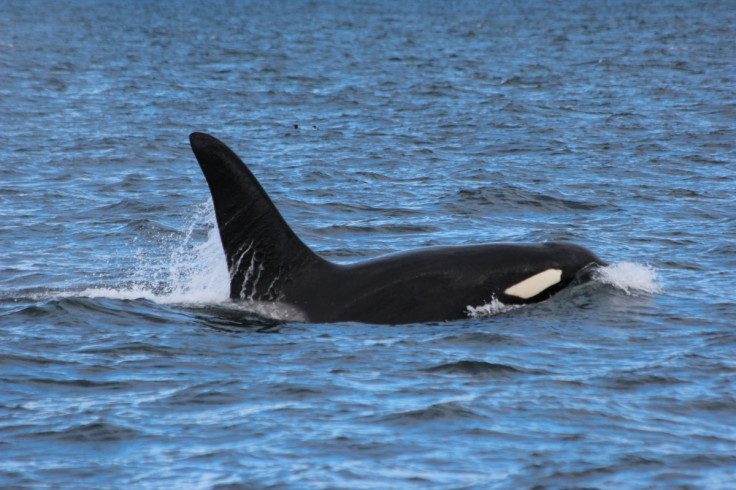Altruistic humpback whales around the world are stopping orcas killing seals
Scientists observe 115 cases of humpbacks interfering with killer whale hunts.
Humpback whales have been stopping orcas from hunting and killing seals in what appears to be a bizarre altruistic intervention. In a review of humpback and killer whale interactions, scientists found that the latter would harass the attacking orca by charging and chasing after it, preventing them from a successful kill on many occasions.
Anecdotal reports of whales coming to the aid of other marine vertebrates in distress have become increasingly common over recent years. Many of these rescues also appear to take place when orcas are attacking. The size of humpbacks mean they have little to fear from orcas, yet the reason for their active interference is a mystery.
In a study published in the journal Marine Mammal Science, an international team of researchers led by Robert Pitman from the NOAA looked at 115 recorded encounters between the two species, looking at which initiated attacks and under what circumstances they took place.
Findings showed most interactions were initiated by the humpbacks (57%) and in 87% of the cases, the orca was attacking or feeding on prey (seals, sea lions etc). Their protection efforts paid off in 18% of the cases. When orcas attacked humpbacks, they primarily targeted calves.
In their encounters where the humpbacks initiated the interactions, they would behave offensively, charging at the orcas and chasing them. They would slap their flippers and tails and bellow – "very loud exhalations humpbacks make when they are excited", they researchers wrote.

The team said that while the threat of injury to the humpbacks is minimal, interactions "did come at a cost". "In addition to disruption of their normal behaviours (e.g., feeding, resting, socialising), they sometimes travelled distances of up to 2km to approach killer whales," the study said. "They often responded vigorously and aggressively and sometimes for extended periods of time: interactions regularly lasted more than one hour and up to almost seven hours.
"Particularly puzzling was the fact that when humpbacks approached attacking [orcas], and the species of prey was identified. 85% of the time it was a species other than a humpback whale, but the approaching humpbacks often continued their interactions or harassment regardless of the prey species."
Discussing the purpose, scientists believe the humpbacks are displaying interspecific altruism. They think the humpbacks respond to the sound of an attacking orca before they know the species. When they arrive, they may offer assistance to remind the orca of their strength. As a result this may put orca off hunting humpback calves in the future.
To find out to exact reason for this apparent altruism, further research will be required. "Although reciprocity or kin selection might explain communal defence of conspecific calves, there was no apparent benefit to humpbacks continuing to interfere when other species were being attacked. Interspecific altruism, even if unintentional, could not be ruled out. We suggest that humpbacks providing benefits to other potential prey species ... could be a focus of future research into possible genetic or cultural drivers of interspecific altruism."
© Copyright IBTimes 2024. All rights reserved.






